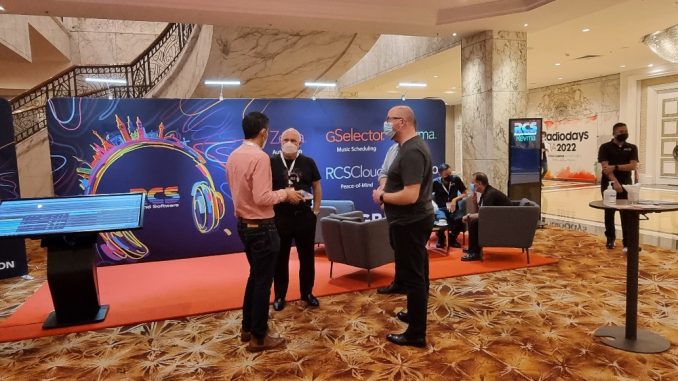
What’s working for leading radio stations around the world at the cutting edge of creativity in programming, sales, marketing, and technology? How do they unlock potential, extend reach, strengthen brands, develop new revenue models, and create sustainable advantages?
A panel of experts discussed this in the session “Creativity, Innovation and Competitive Advantage”.
The session was moderated by Francis Currie and the panel included Anna Dixon, Senior Service Designer, ABC, Udit Tyagi, Chief Digital Officer, Radio Mirchi, India and Chris Johnson, Head of Digital & Innovation, SCA.
Francis began the session by asking the panelists what is the most exciting thing they have seen in the digital space?
Chris said: “The practical applications of AI, they are going to add to our daily lives.” For Anna, “seeing a shift to sharing more authentic experiences is very interesting,” and Udit found in car consumption and NFT initiatives to be most promising.
When asked which part of AI they found most interesting, everyone had a different opinion. Chris found content creation to be very interesting, “We wanted to have an IP an we gave an AI program 5 minutes of audio and it’s consistently creating an audio tree,” he said.
Anna said: “News. If there’s endless amounts of data, AI can sift through it and save time. We’re also working with a company in Spain on a misinformation ping system. If a politician or someone says something that’s not accurate or true, you’ll get a ‘ping’ wherever you’re seeing them.”
Udit spoke of integrating AI with wearables. “Information from wearables can integrate with audio to make recommendations relevant to users.”
Moving on, Francis asked Udit: “Is traditional radio dead? If not, why has Mirchi dropped it from its name?”
“It’s not dead. In fact, Mirchi is back at pre-covid numbers on Radio, which will grow but maybe not at the same pace as digital. We don’t want to constrict ourselves to radio, you have to be everywhere. As some quoted Charles Darwin – It’s not the strongest or the fittest who survive, it’s those who are most adaptable,” replied Udit.
“Anna, you have access to a lot of research. When you see the younger generation, is radio dead for them?” said Francis.
“First of all, I think one should kill the question ‘’Is radio dead’. In Australia there’s still a big digital divide and a lot of people don’t have data access. For them radio is important,” she replied.
Discussing content monetisation, Francis asked about new ideas to make new money from new people.
Chris said that they focus on premium services and products such as podcasts and with integrated sponsorships. Udit said in India people have been lethargic to move from radio to digital and more groundwork needs to be done.
What does the audio landscape look like 10 years ahead?
Udit said: “It has to evolve. Currently it’s a very app driven market. As soon as everyone digitizes, you can be platform agnostic which will create enormous opportunities. NFTs would be very aggressive.”
Anna said discovery of content and personalisation would be important in the future.
“Radio is slowly going to decline as smart speakers rise. Podcasting will grow in momentum and you’re also going to have new formats. Many people will be thinking how to distill their business down to an icon on a screen,” said Chris.
Photo – John Maizels
